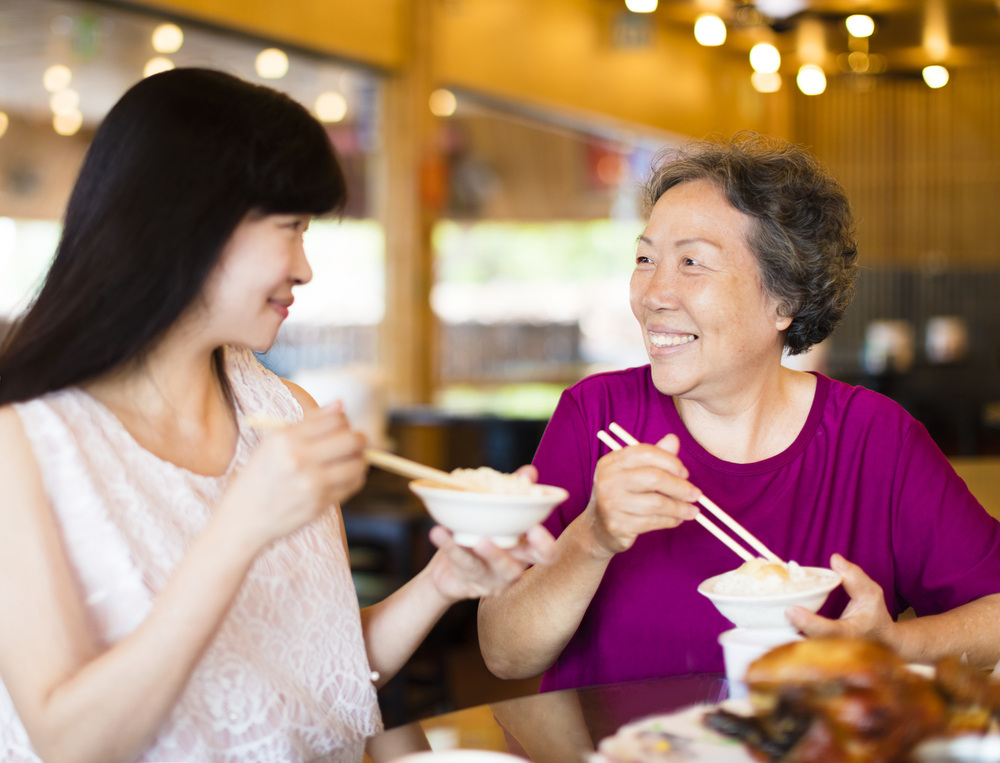Contents:
- Medical Video: The 9 BEST Scientific Study Tips
- Tips so that the elderly want to eat heartily
- 1. Create a pleasant dining atmosphere
- 2. Pay attention to your loved one's eating habits
- 3. Help the elderly to eat
- 4. Fulfill your nutritional needs
- 5. Maintain healthy teeth and mouth
- 6. Pay attention to medicines consumed by the elderly
- 7. Persuade the elderly to want to eat patiently
Medical Video: The 9 BEST Scientific Study Tips
There are various reasons why older people (older people) become more difficult to eat. It could be because they have certain diseases, are undergoing treatment, or because of the natural process of the body that is aging. Whatever the reason, the elderly still have to eat and fulfill their daily nutritional needs. Then how do you deal with it so that the elderly want to eat more heartily? Take it easy, you can try various methods below.
Tips so that the elderly want to eat heartily
1. Create a pleasant dining atmosphere
Eating alone can make the elderly lazy to eat or delay the meal because they want to wait for other family members to eat too. Therefore, as much as possible accompany your parents or grandparents when they eat.
While eating, invite the elderly to talk about things they like. Don't eat while talking about things that are negative or too serious. It can make the elderly consider eating time unpleasant and should be avoided.
If indeed there are important things to talk about, wait until your loved one finishes eating and leaves the dining room.
2. Pay attention to your loved one's eating habits
You have to memorize elderly eating habits. For example, the elderly quickly get bored with the menu that's all. Try to present a varied and varied food menu every day. You can even try to design a monthly meal menu with your loved ones. That way, he can feel more involved and have control over his food.
Meanwhile, if the elderly are the type of person who is picky about food, serve the food that he really likes and already knows the taste. Don't present too many new foods that he hasn't tried before. At present, nutritional needs are more important than the risk of the elderly not wanting to eat because they are afraid to try a new menu.
3. Help the elderly to eat
Maybe your loved ones actually feel hungry and want to eat, but have difficulty doing it. Therefore, accompany the elderly to eat and pay attention to their needs.
You yourself must be sensitive to their needs, not to let the elderly have to repeatedly tell you what they need. This is because after a while he will be afraid to bother you or feel that you really don't want to help him.
For example, the elderly have difficulty cutting food like meat. We recommend that you help cut the food into smaller pieces. If the elderly have difficulty lifting a drinking glass, provide a straw and help your loved one drink.
4. Fulfill your nutritional needs
Elderly people don't have to eat too much at once. You can eat a little, but the key is to make sure the food is nutrient-dense. Every meal, the elderly must get carbohydrate, protein, vitamins, minerals, fiber and fat.
You can consult with a doctor and nutritionist to determine what types of food may and may not be consumed by the elderly and ask for guidance to meet the nutritional needs of the elderly.
5. Maintain healthy teeth and mouth
Oral and dental health is one of the things that needs attention. Difficulty chewing and not eating can be due to discomfort in the mouth, dry mouth, sprue, rocking teeth, and poor hygiene (including poor dentures) can affect eating comfort.
In addition, toothless teeth in the elderly also affect food selection. Therefore, you should accompany the elderly to check with the dentist if there are certain complaints and for routine control.
6. Pay attention to medicines consumed by the elderly
The use of drugs for certain conditions can cause a decrease in the body's ability to absorb certain nutrients, digestive disorders, and decreased appetite.
Therefore, record all types of drugs used by your loved ones and tell your doctor if there are changes in diet in the elderly. For example, if the elderly do not want to eat.
Before consuming a new type of drug, you should also ask your doctor and pharmacist whether it will cause side effects, namely loss of appetite.
7. Persuade the elderly to want to eat patiently
Try to remember when you were little. The more forced and scolded to eat, the more you don't appetite, right? Likewise with the elderly.
Therefore, when you persuade an elderly person to eat, you have to be patient and always use positive, light, and cheerful tones. Don't even be threatened like, "If you don't eat right now, then I won't prepare any food for you."












